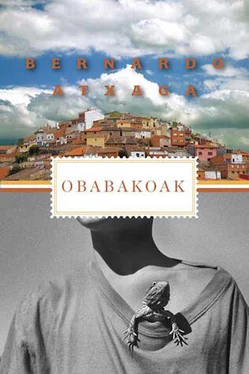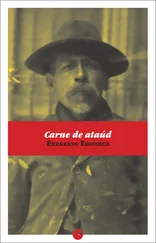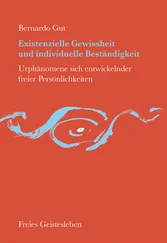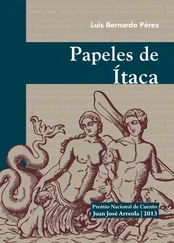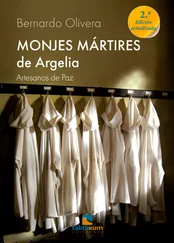Bernardo Atxaga - Obabakoak
Здесь есть возможность читать онлайн «Bernardo Atxaga - Obabakoak» весь текст электронной книги совершенно бесплатно (целиком полную версию без сокращений). В некоторых случаях можно слушать аудио, скачать через торрент в формате fb2 и присутствует краткое содержание. Год выпуска: 2010, Издательство: Graywolf Press, Жанр: Современная проза, на английском языке. Описание произведения, (предисловие) а так же отзывы посетителей доступны на портале библиотеки ЛибКат.
- Название:Obabakoak
- Автор:
- Издательство:Graywolf Press
- Жанр:
- Год:2010
- ISBN:нет данных
- Рейтинг книги:3 / 5. Голосов: 1
-
Избранное:Добавить в избранное
- Отзывы:
-
Ваша оценка:
- 60
- 1
- 2
- 3
- 4
- 5
Obabakoak: краткое содержание, описание и аннотация
Предлагаем к чтению аннотацию, описание, краткое содержание или предисловие (зависит от того, что написал сам автор книги «Obabakoak»). Если вы не нашли необходимую информацию о книге — напишите в комментариях, мы постараемся отыскать её.
Obabakoak
The Observer
Obabakoak — читать онлайн бесплатно полную книгу (весь текст) целиком
Ниже представлен текст книги, разбитый по страницам. Система сохранения места последней прочитанной страницы, позволяет с удобством читать онлайн бесплатно книгу «Obabakoak», без необходимости каждый раз заново искать на чём Вы остановились. Поставьте закладку, и сможете в любой момент перейти на страницу, на которой закончили чтение.
Интервал:
Закладка:
Back home, she reached for her notebook and added a few lines to the previous night’s entry:
First consequence of what happened: Manuel will no longer be in charge of lighting the stove. He has lost his post, out of sheer stupidity.
Sometime later, when she was having her lunch, she heard someone tapping on the kitchen window. It was the local postman, Time’s second messenger of the day, the one o’clock messenger.
“Excuse me, Miss, but I’ve got three letters for you,” he said when she opened the door to him.
“Three letters?”
“Yes, three of them. They must have got lost because look…”
The postman showed her the letters one by one. Not one of them bore the name “Obaba.”
“That’s why they’ve taken so long to reach you. Because they didn’t put the name of the village, only the name of the quarter.”
The schoolmistress nodded her agreement, stunned, unable to utter a single word. She’d recognized the writing on the envelopes. There was no doubt about it, it was that of Her Best Friend.
They’ve opened a new restaurant by the beach. It would be nice if we could have supper there during the holidays. If you’d like to, of course, and haven’t any other plans. It would be my treat. Seriously, though, I’d love to have supper with you, but just the two of us, and not as it used to be, with all our other friends around. That way I can find out how much you’ve changed since your departure for the end of the world.
That paragraph, the final one of the third letter, merited five or six readings, and, like the grain of mustard seed in the parable, it put down roots in the schoolmistress’s heart ready to grow into a great, leafy tree. But, in fact, every line written by Her Best Friend was important, not just that one paragraph; every line comforted her, contributed something to the joy which from then on would constitute her strength. After reading those three letters, the notes and thoughts she’d written down in her diary seemed mediocre and insubstantial.
“They’re not going to beat me,” she thought, remembering the events of recent days. “I won’t allow their calumnies to continue. I’ll make them respect me.”
The people of Albania didn’t frighten her anymore.
Before going back to school, she selected a postcard with a Nymphalis antiopa on the front and scribbled a few lines in reply to Her Best Friend:
Your invitation is accepted. Supper at the new restaurant it is. On one condition: It will be my treat. I haven’t even touched my first wage packet yet. I was so pleased to get your letters, so pleased. You know why. See you soon. PS: I only got your letters yesterday. I’ll explain why later.
“I hope this letter doesn’t get lost as well! Try and make sure it arrives before I do!” she said to the postman when she went to deliver it.
She spent the afternoon teaching the children Christmas carols and singing along with them. Afterward, while she was putting away the school things, she considered her new situation, promising herself that she wouldn’t let this opportunity pass her by, that she would hang on with all her might to this happiness that had appeared in her life just when she’d least expected it. In other words, the tree that had put down roots in her heart was not going to let any weeds or bushes grow up around it.
The next day, the Tuesday before Christmas, dawned clear and cold in Albania, with a blue sky and a brilliant sun, and the schoolmistress waited at her window for the arrival of the servant boy. Immediately opposite her, in the distance, rose seven white mountains — two plus three plus two.
The boy arrived a little before half past eight.
“You stay right there,” the schoolmistress ordered when he made to come into the house. “I presume you want the key,” she said. And without giving him time to reply went on: “Well, I’ll give it to you today, but this is the last time.”
The boy looked down and had to swallow hard before he could say anything.
“But why?” he managed to stammer out in a dull voice.
“Do I really need to tell you why?” answered the schoolmistress, pushing the door to.
“You could leave the key outside and then I wouldn’t have to bother you.”
“No, Manuel. You’ve lost the job.”
The door of the gray and white house closed.
The boy took the two hundred and fifty steps required to reach the school and once there, he started slowly up the stairs as if he were very tired, stopping first on the sixth stair, then on the tenth, then on the seventeenth, and so on until he reached the last of the twenty-three steps. But, once inside the school, he seemed suddenly to recover all his energy and in a matter of seconds, almost without realizing what he was doing, he had trampled into nothingness a large part of the lands of Africa and Asia.
“Why take it out on Egypt, Hannibal?” Moro asked accusingly, for that was the country that had suffered the fiercest attack, adding: “Now what are they going to do, with the Nile in ruins?”
He had to admit his adjutant was right and he was doing his best to repair that longest of rivers when he heard the hermitage clock strike nine and he fled to his house, to the mountains, abandoning the Egyptians to their fate.
If I could, I’d go out for a stroll every night
I. Katharina’s statement
IF I COULD, I’d go out for a stroll every night, except that I don’t dare, I’m too frightened. Sometimes, when I’m feeling braver, I go down to the front door of my house and I walk as far as the station, telling myself over and over: Katharina, don’t be silly, it doesn’t matter if the streets are empty, just walk quietly along and don’t think about all those things they write about in the papers, because the newspapers exaggerate everything, they almost seem to enjoy talking about murdered women and all that. But I’ve barely finished thinking this than I’ve turned around and I’m back home.
The other thing is that I feel a bit embarrassed going out for a stroll on my own. A neighbor told me I should buy a dog and that way when someone said to me: “What are you doing out for a stroll at this time of night?” I could reply: “It’s the dog, you see, I can’t let this lazy lump just lie around all day and get fat and ugly.” And the dog would act as protection too, because when it came to buying one I’d choose one of those specially trained dogs, the ones that go straight for the throat, a Doberman, or something like that.
If it didn’t rain so much in this city, that’s the solution I’d opt for, the dog I mean. I’d call it Clark and it would want for nothing, it would have rice and meat to eat and a comfortable place to sleep in. But the days here tend to be rainy and cold and it’s impossible to keep pets, and I don’t want to buy a dog only to have it fall ill for lack of exercise.
So I have no alternative but to forget about going for a walk and go to bed instead, but not to sleep, just to lie quietly and enjoy the last breath of the day from there. In fact I have my time very well organized. First I correct the exercises from the private math lessons I give the children. Then I turn on the radio and I read one of those magazines that tell you all about the love life of the Aga Khan and things like that. Daft magazines, I know, and terribly superficial, but just the thing when you don’t want to think about anything serious. Later on, at about two o’clock, I start knitting a sweater, knitting it or unknitting it, because I’m one of those indecisive types and I find it very hard to stick with whatever color or size I’ve chosen.
Even when the radio programs finish, I still find lots to do, I get on with my own things, with my knitting or whatever, in no hurry to go to sleep because, since I give private lessons in the afternoons, I don’t have to get up early. And anyway there’s the train, above all there’s the train.
Читать дальшеИнтервал:
Закладка:
Похожие книги на «Obabakoak»
Представляем Вашему вниманию похожие книги на «Obabakoak» списком для выбора. Мы отобрали схожую по названию и смыслу литературу в надежде предоставить читателям больше вариантов отыскать новые, интересные, ещё непрочитанные произведения.
Обсуждение, отзывы о книге «Obabakoak» и просто собственные мнения читателей. Оставьте ваши комментарии, напишите, что Вы думаете о произведении, его смысле или главных героях. Укажите что конкретно понравилось, а что нет, и почему Вы так считаете.
